I’ve been thinking about writing this article for a long time. But every time I sit down to write it, I think, “I’m not ready yet. Not today.” We’re coming on four years since losing my pups, and the reality is that it will never be easy to write about. Maybe sometimes you just do it anyway. And this one’s important.
Please, if you’re currently experiencing the loss of a pet, listen to yourself. It’s okay to not read this.
The Craigslist ad I found in April 2012 advertising a 12-pound mahogany sable sheltie with a perfect blaze said the dog was four years old. When I picked Sam up, the previous owners said they’d been mistaken; he was five. When I looked at the paperwork I saw his birthday was in a month—he’d soon be six. I’d lost two years in minutes. From that moment on, I began dreading the day Sammy would die.
In Lost & Found, author Kathryn Shulz says, “The first problem that love presents us with is how to find it. But the most enduring problem of love, which is also the most enduring problem of life, is how to live with the fact that we will lose it.”
My sister knew Sammy was sick before I did. She didn’t see him often, so when she came for Christmas in 2018, she said, “His breathing has changed.”
My wife pulled out her stethoscope and listened to his heart. “There’s a murmur,” she confirmed.
In February we took Sam to a cardiologist. Little Sammy panted through echocardiogram as we peered at his heart, at the disease stealing his breath. From the grain-free food? Bad genetics? The cruelty of old age? The test couldn’t divine that much. “One to three years,” the cardiologist said, and handed me a list of medications.
I lost my boy on May 7th, 2021. He was 14. We buried him on a friend’s farm under the pines and laid my favorite flowers on his grave. It’s been four years, and I’m still in tears writing this. I knew it was coming; he’d been sick a long time. It still destroyed me.
I was not prepared for Brie.
She was two years younger than Sam. She was healthy, exuberant, still played ball in the yard. She was my princess, my exquisite creature. And suddenly, only two months after losing Sam, she was dying.
Once again, someone else understood what was happening before I did. My wife knew we needed to let her go; I insisted we leave her overnight at the emergency vet for treatment. I behaved abominably, like a wild animal, accused her of prioritizing money over our dog’s life when she said we should stop treatment. It was end-stage kidney failure. Of course, my wife was right. But so soon after losing Sam, I was delusionally optimistic. I was sure Brie could come back from this.
We buried her next to her brother, the wilted gerbera daisies still resting on his grave, and came home to a house that felt like a shell.
Do you know this moment? This suffering, that you’ve spent years fearing and warding off and denying, that finally knocks on your door to say, “It’s time”? Somehow, even after all those years of knowing it would end like this, of signing the contract every dog owner signs that says, “I will love you with my whole heart and then I will lose you,” when it finally happened, I was caught unawares.
That is the shape of grief. We delude ourselves into believing it will never come while at the same time bracing for it every moment. When it does finally arrive, we are shocked: “But how could this happen to me?”
In all my years of experiencing my own grief and walking through grief with my patients, I have learned that the face of grief is different for every person and with every loss. I’ve learned that grief is cruel, but it is also precious. It would not hurt this much if we had not loved that much. The pain is commensurate to love. And I have marveled at the resilience of the human spirit, how we are always willing to give over our hearts to love again.
Psychologist and Holocaust survivor Viktor Frankl wrote in Man’s Search for Meaning, “In some ways suffering ceases to be suffering at the moment it finds a meaning.”
The first time I heard this idea, it was in this form: choose your suffering. No matter what choice you make, you are choosing both joy and suffering, both gain and loss, from the smallest decision to the most life-altering. If I choose to be single instead of partnered, I choose the benefits of freedom, agency, and only considering my own needs, but I sacrifice the companionship, comfort, and security of partnership. If I choose not to have a dog, I am shielded from bereavement—I will never have to say goodbye. But I suffer the loss of years of love, relationship, laughter, and memories.
The difference between choose your joy and choose your suffering is that we tend to focus only on the joy when we throw ourselves into a choice. We want all those benefits we can see so clearly. However, we often forget about the suffering that inevitably comes with our choice. “Your joy,” Kahlil Gibran says, “is your sorrow unmasked.”
But when we think openly about the suffering that comes with our choice—to get the dog, to have the child, to leave the job—alongside the joy, and commit ourselves to that suffering in service of joy, we infuse the suffering with meaning. It’s more endurable because now it feels worth it.
We adopted Pants in August 2021. There was a part of both my wife and me that thought maybe it was too soon. Maybe we weren’t ready. But in the spirit of choosing our suffering, we decided that the suffering of getting a dog too soon was worth the joy of having that dog. The suffering of being without a dog simply was not worth the safety of waiting until we were certain we were ready.
I still feel the grief of Sammy and Brie like I lost them yesterday. But I did—and will—do it again and again and again, because though the suffering was vast, it was worth it.
They were worth it.




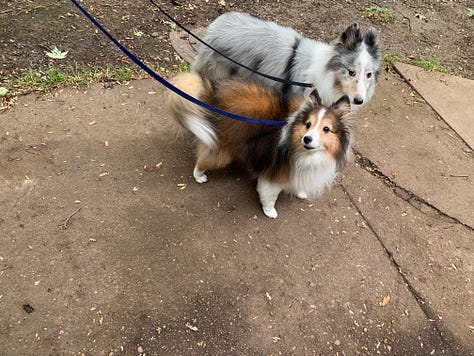
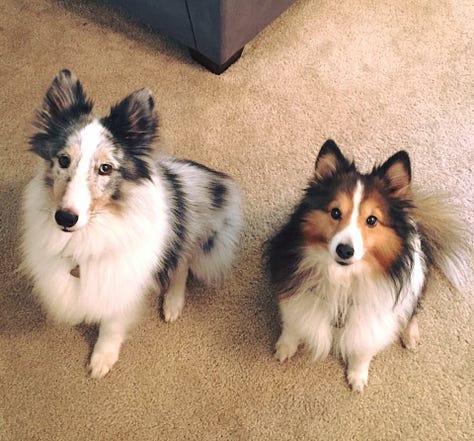
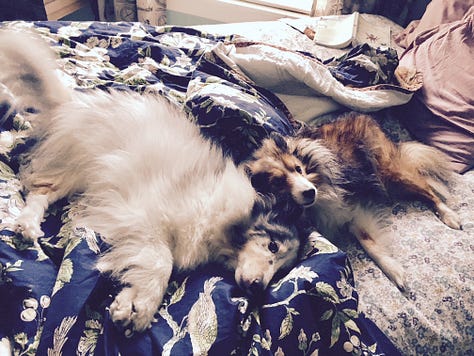
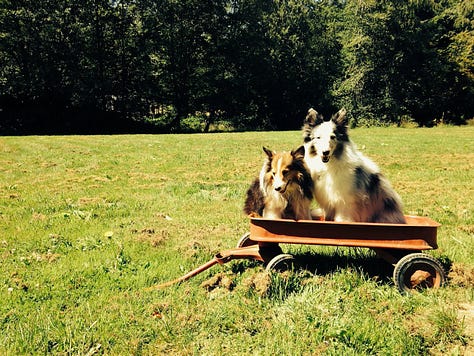



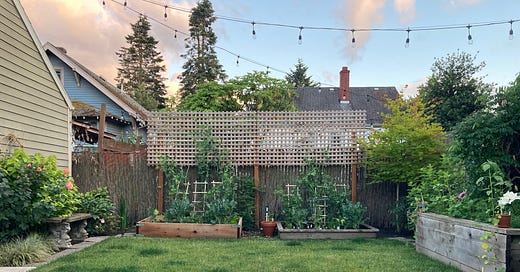


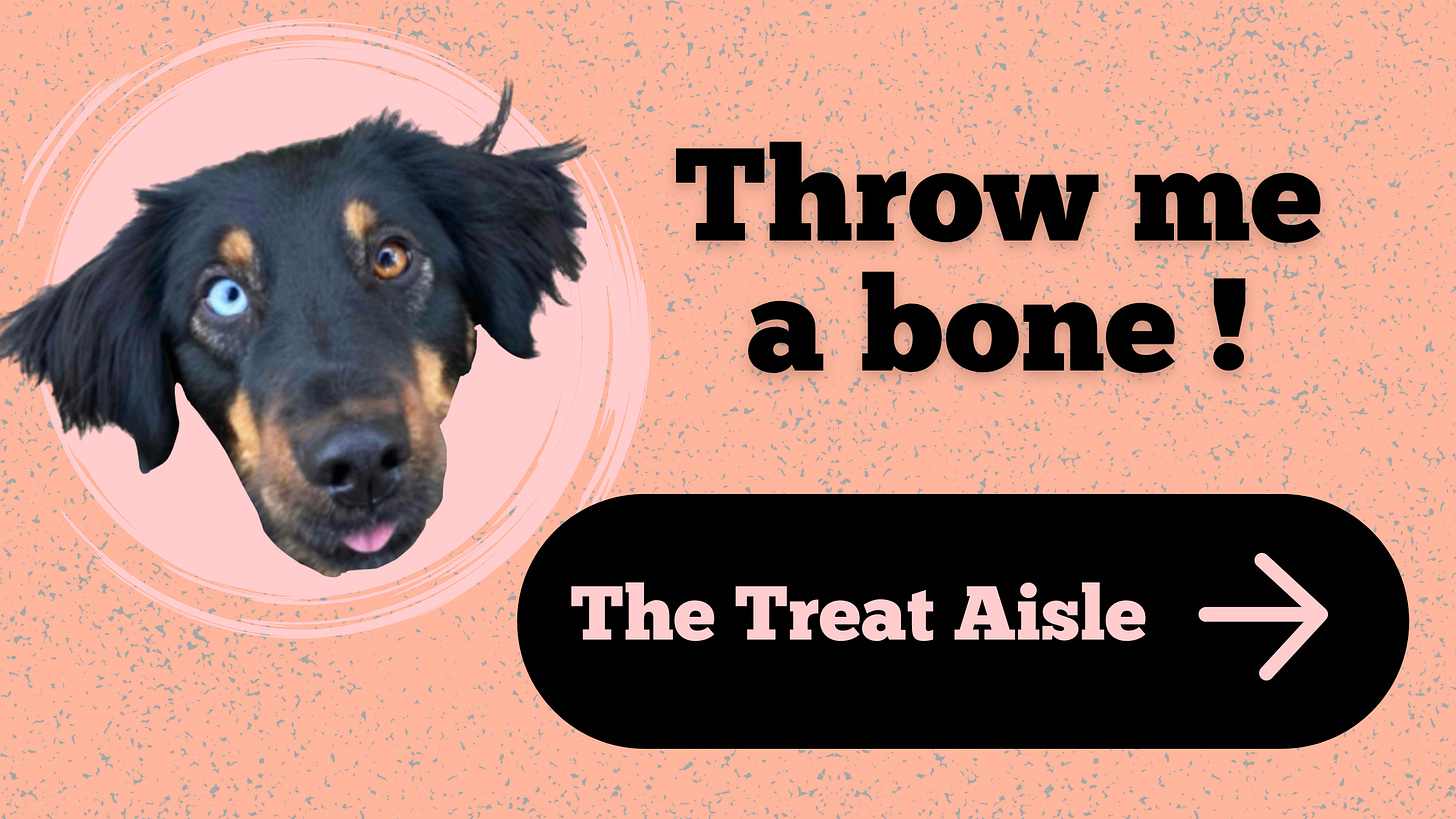
Our beloved dogs do not pass away, they curl up in our hearts and go to sleep.
Indulging in love and happiness always comes with loss, yet so few people talk openly about it. Our culture hides from pain as if it doesn't or won't exist. Thank you for sharing your stories of loss and the tsunami of emotions that ensued. Their real, but so is the love you have and will continue to give.